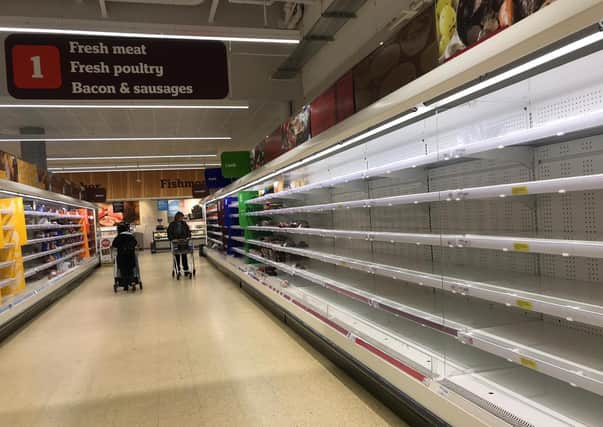Failure to strike post-Brexit deal ‘three times worse than Covid-19 hit’


Queues at the Border, shortages of fresh food and medicine as well as more “hassle” travelling to the continent are also possible, according to the UK in a Changing Europe group. A report by the organisation, based on modelling with the London School of Economics (LSE), said the impacts of coronavirus may mitigate or obscure the impact of a no-deal exit.
But it warned that not forming an agreement with Brussels would have a significant impact in the long term.
Advertisement
Hide AdAdvertisement
Hide AdThe authors wrote: “The claim that the economic impacts of Covid-19 dwarf those of Brexit is almost certainly correct in the short term. Not even the most pessimistic scenarios suggest that a no-deal Brexit would lead to a fall in output comparable to that seen in the second quarter of 2020.
“However, assuming a reasonably strong recovery and that government policies succeed in avoiding persistent mass unemployment, in the long run Brexit is likely to be more significant. Our modelling with LSE of the impact of a no-deal Brexit suggests that the total cost to the UK economy over the longer term will be two to three times as large as that implied by the Bank of England’s forecast for the impact of Covid-19.”
The transition period, which kept the UK aligned to the EU’s single market and customs union rules to allow trade to flow smoothly after Brexit, expires at the end of the year unless both sides agree to an extension – something Boris Johnson has ruled out. Trade deal talks between the two sides are continuing, but the Prime Minister has set a deadline of 15 October for an agreement to be reached, otherwise he has said he would simply walk away from the negotiating table.
Professor Anand Menon, director of the UK in a Changing Europe, said: “While the Prime Minister said no deal is a ‘good outcome’, our report shows that it may lead to significant disruption and will have a significant negative economic impact.”
Ministers were meanwhile warned Boris Johnson’s Government was on the verge of committing the “biggest act of economic self-harm” seen in recent years. SDLP leader Colum Eastwood criticised the Internal Market Bill, which the Government has acknowledged would break international law by seeking to override the Brexit divorce deal.
Comments
Want to join the conversation? Please or to comment on this article.